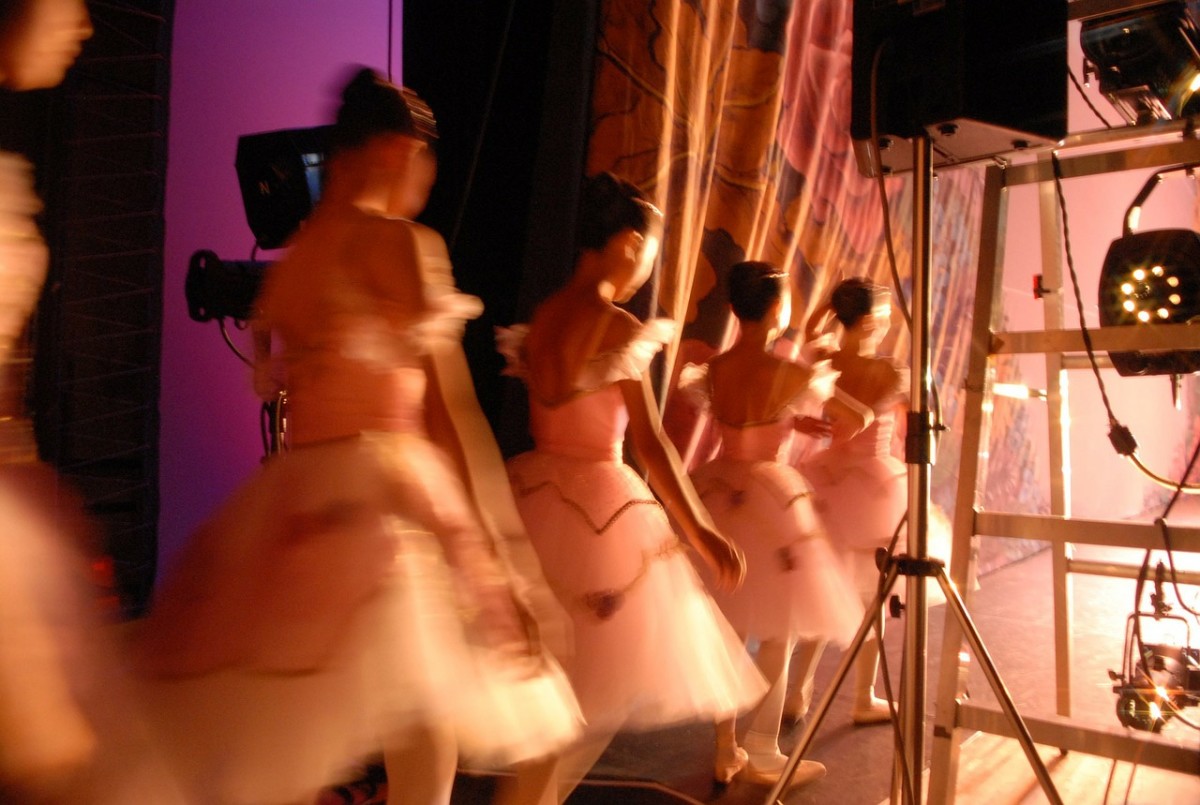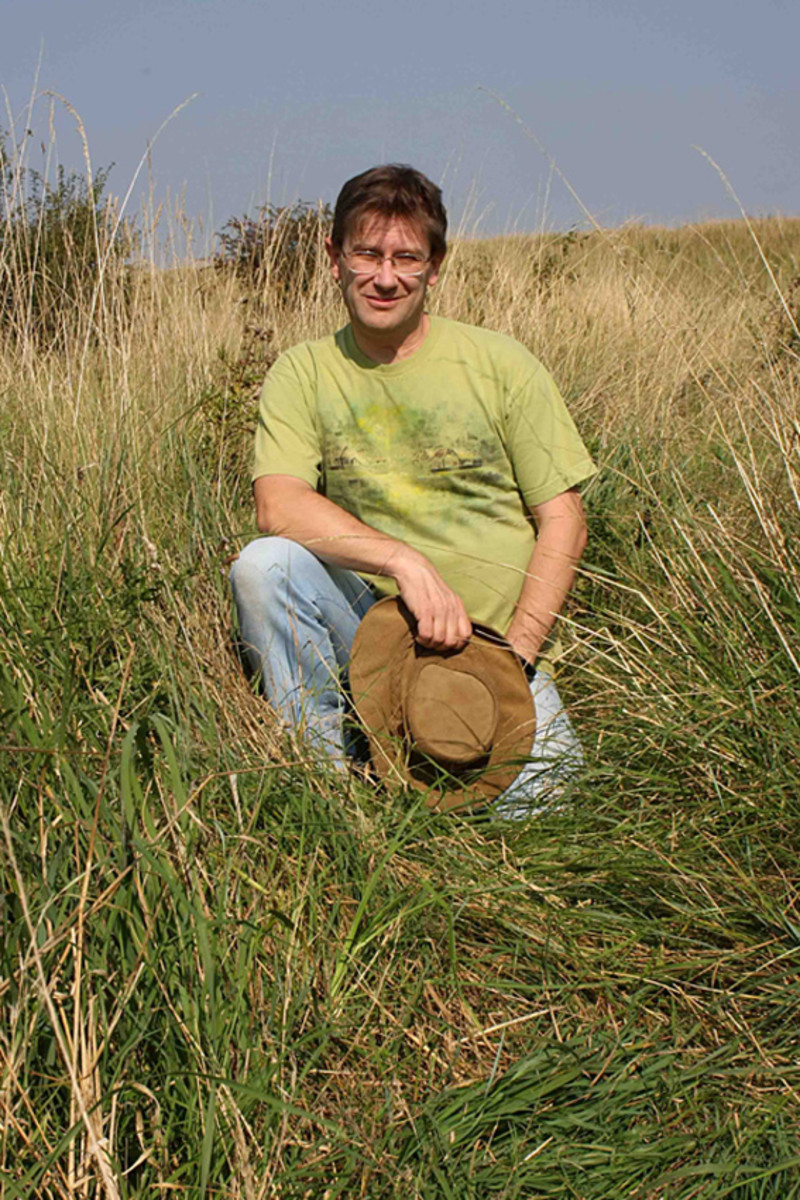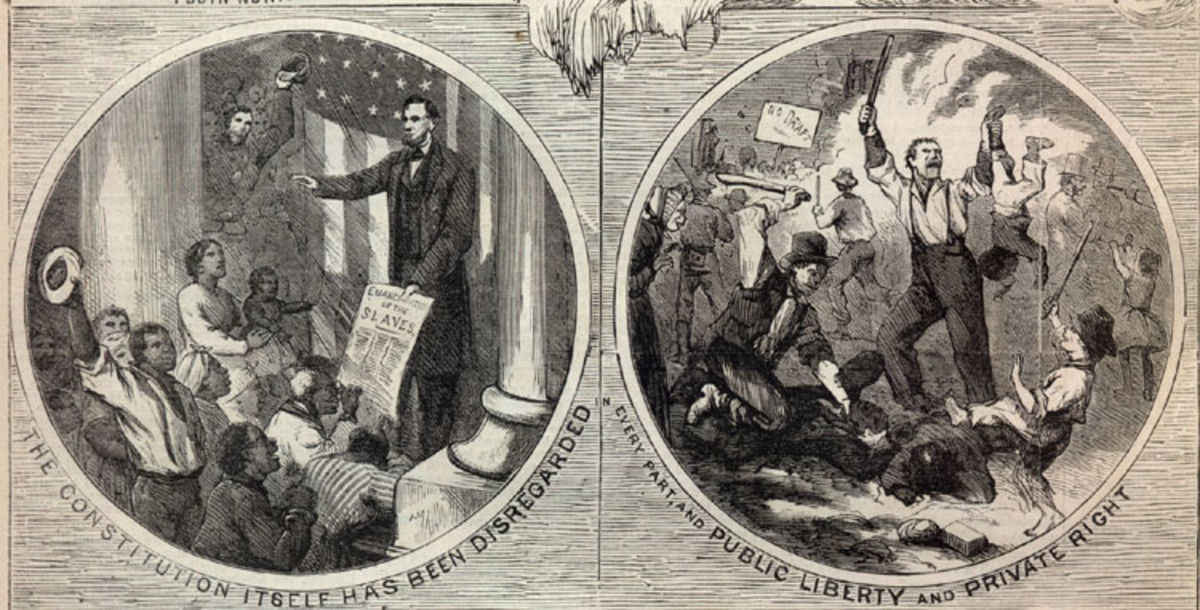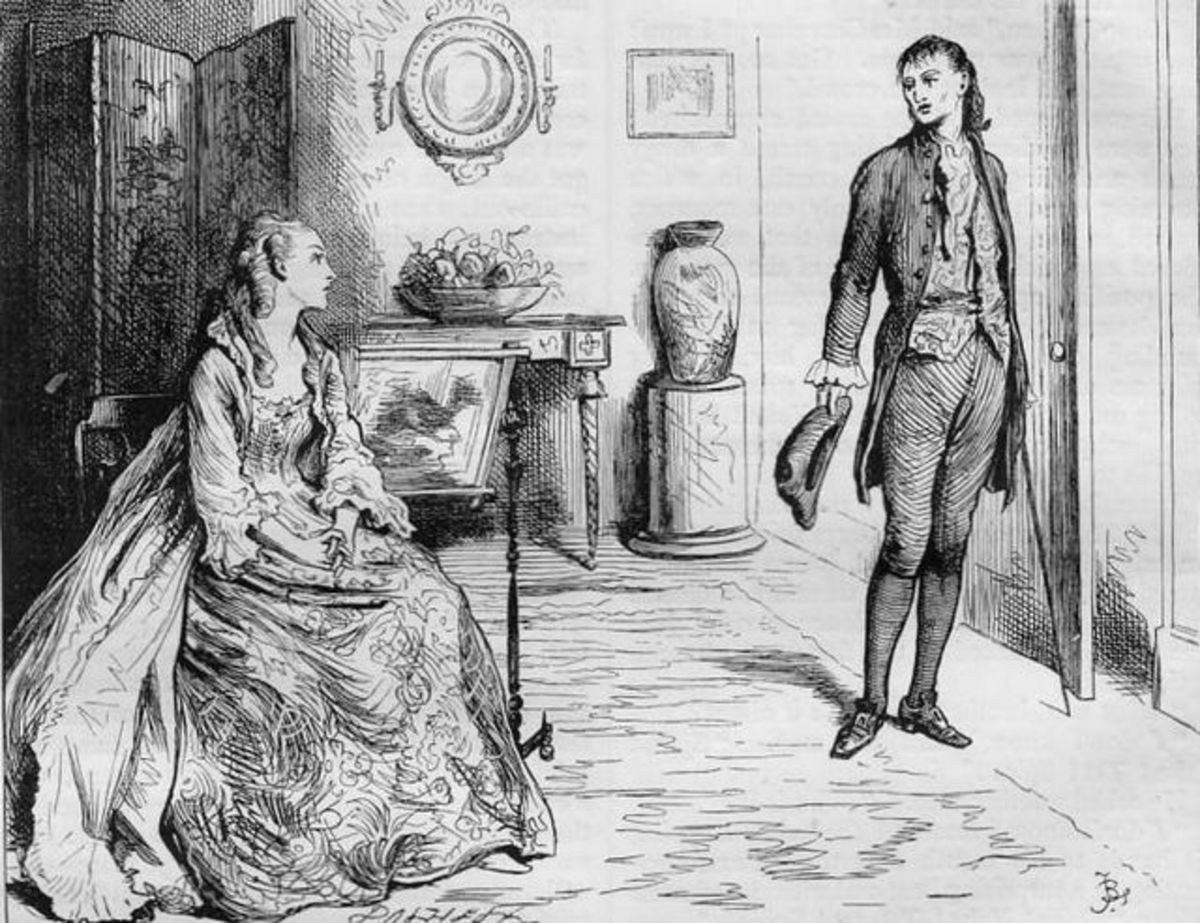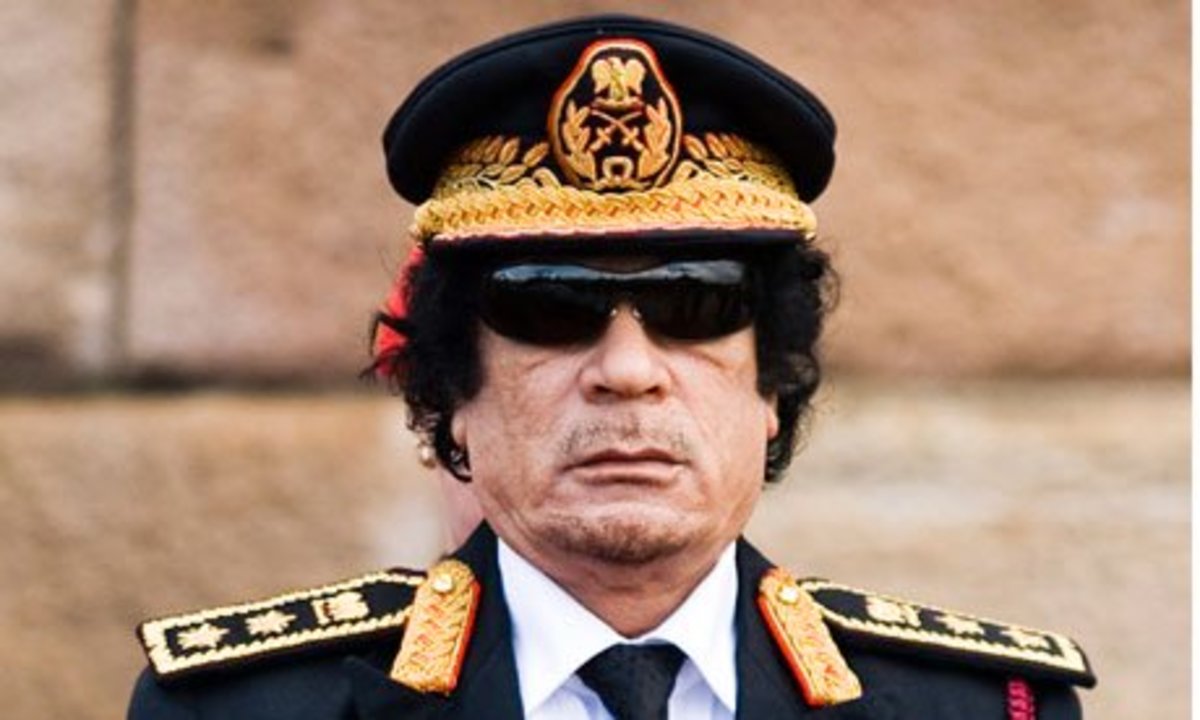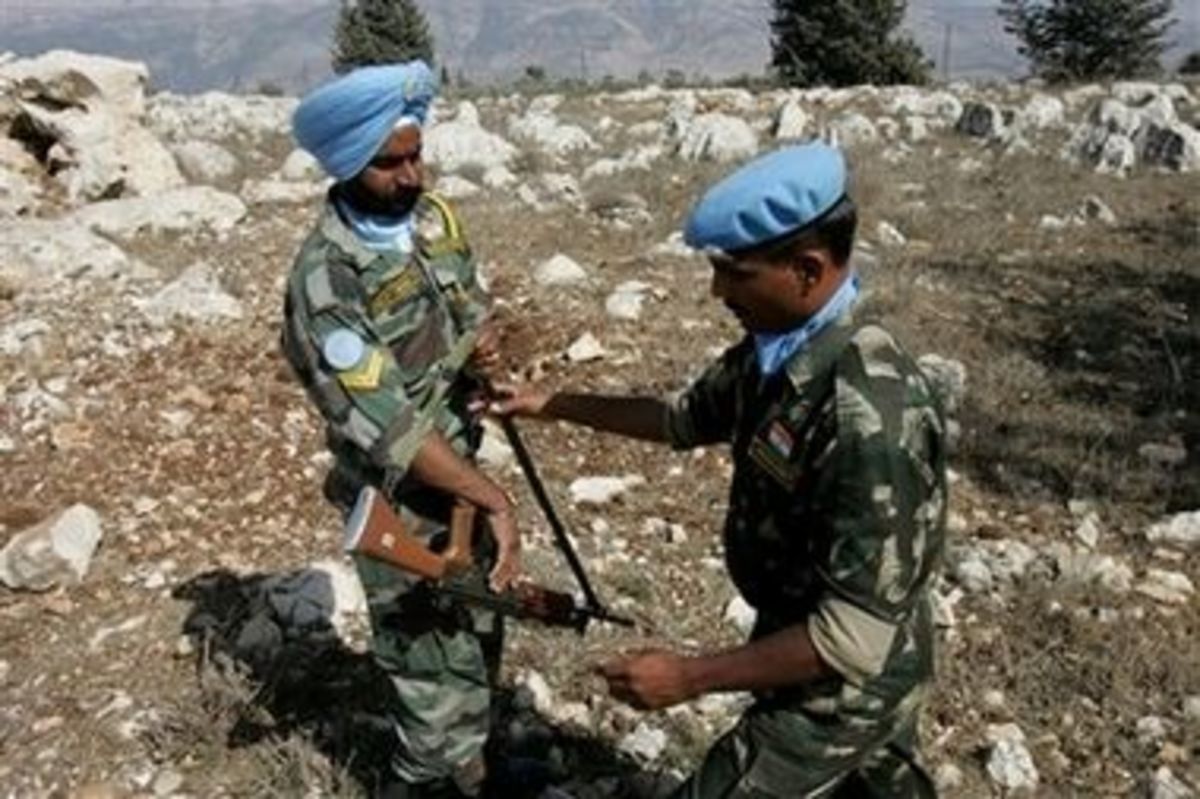A Case Study of Tunisia and the Role Civil Society Played in Shaping Its Revolution
Introduction
Why was Tunisia so successful in transitioning to democracy while other nations in the Middle East and North Africa fell back into oppression? It is a question that has plagued researchers since the completion of the Arab Spring and one that will continue to be asked until the rest of the Arab world reaches its own form of democracy. Tunisia stood as the first nation to protest in the Arab Spring and is now the first nation that participated to become truly democratic. Many factors have been considered when trying to understand why it is that Tunisia was so successful, and they have all been presented at one point in time as the main reason as to why Tunisia succeeded. Each of these factors is important and should be considered in its own light, all of which should be used to determine finally whether Tunisia is the model for democratic transition in the region.
Literature Review
Due to the large amount of papers presented on this topic there have been many different aspects of Tunisia presented as possibly “the key” as to why their transition was more successful than others. This section will take a moment to address these separate claims, dive into the main points that researchers focus on and present some of the previous data made available. Each section will also mention a few studies that talked about these specific areas and both sum up and display the conclusions drawn from each paper. The research used in the creation of this literature review is within the timeline of 2010-2015, with no articles reaching outside of this range.
Researchers that focus on Civil Society
Before jumping into the papers that focus on this aspect of the revolution, we must first define Social Capital and Civil Society. Social Capital was a term coined by Robert Putnam, who defined it as, “the networks of relationships among people who live and work in a particular society, enabling that society to function effectively.” Civil Society on the other hand refers to, “society [being] considered as a community of citizens linked by common interests and collective activity.” These two terms must be defined, especially when looking at Tunisia, because Civil Society is the part that researchers look at the most for this country. Many studies have been written about the role it played and how it shaped the country into what it is now. Social Capital on the other hand has been referred to as something the country possessed a great deal of, enabling its Civil Society to thrive as it had both prior and post-revolution. Now that those have been defined, we can focus on the previous research dedicated to Tunisia on this specific topic. It should be noted prior that there is an overwhelming consensus that Civil Society played a very great role in shaping Tunisia post-revolution and that even scholars who do not claim that it was the largest factor still admit that it was a very important factor, nonetheless. The Tunisian Quartet is an organization that is also worth mentioning, as it has been internationally recognized as playing a significant role in Tunisian Civil Society. The Tunisian Quartet was formed in the spring of 2013, in post-revolution Tunisia and is called the Tunisian National Dialogue Quartet. They helped to negotiate a pluralistic democracy in Tunisia post-revolution by getting involved in the constitutional assembly that was created after the election of the first government. They are a combination of four different groups: The Tunisian General Labor Union, The Tunisian Confederation of Industry, Trade and Handicrafts, The Tunisian Human Rights League, and The Tunisian Order of Lawyers, all of which combined to create the Quartet and all of which have played a significant role in Tunisian Civil Society.
Study on the Role of Civil Society in Tunisia
This specific paper was meant as a focus on Civil Society in Tunisia and how it developed over the years and finally played a pivotal role in the Transition process for Tunisia. It was written as a thesis paper by the graduate student Veronica Baker at University of Colorado and It gives a steady background of events, by beginning all the way back in the Ottoman Empire when Tunisia was under its jurisdiction and continues onwards up until the Jasmine revolution. It was written on the basis that some researchers have contested that Tunisia is nothing more than a lucky break and should not be considered anything more than an exceptionally lucky triumph. The paper also takes a stance that the role of women’s rights is representative of the freedom of the country and points out how Civil Society could be examined in this particular case and applied abroad as well. She also argues that despite claims that Tunisia was just a lucky break, it offers much to learn from for other countries in the region. It lists all known NGO’s in the country and talks about how the role that specific ones played would eventually not only be recognized in the government as pivotal but also by countries abroad. Much of the paper is the author pointing out the past of Tunisian Civil Society and how, “The steady development of civil society throughout the course of Tunisian history gave it the authority, experience, and reputation to act,” (Baker 51) in reference to the action’s that were taken by non-governmental organizations during and post revolution. The paper was written in the fall of 2015, well after the events of the revolution and only a few months after the recognition of the Tunisian Quartet by the awarding of the 2015 Nobel Peace Prize.
Civil Society Research Conclusion
The overwhelming majority of articles about Tunisian Civil Society argue the same points listed in the article above (excluding the focus on women’s rights that is included), and it is because of this that no more will be included in this literature review. The point stands very firm that many researchers acknowledge the role that Tunisian Civil Society has played in the creation of this newly democratic nation. The only difference is whether researchers determine it to be the primary role, or a secondary role only to one of the others listed below.
Research Focused on the Military
The military is another aspect of the uprisings that is considered to have played a significant role. In fact, it is the lack of Military intervention that draws the attention of some scholars. There is no debating the fact that the military did not participate in any meaningful way that might have contributed for or against the revolution, however there are arguments made that the lack of military intervention is what allowed the young government post-revolution to undergo its own growing pains and become what it is now. The difference of opinion on the military’s role in the revolution is somewhat muted because there is no debate that they did not get involved on the side of Ben Ali. However, the debate arises around why they helped the protesters and did not aid Ben Ali as well as whether this was the most significant event that aided the revolution.
"The Arab Spring"
The Arab Spring is a book written by Jason Brownlee, Tarek Masoud, and Andrew Reynolds. It is meant as a detailed look into the Arab Spring in general and theorizes why certain regimes fell while others did not, as well as attempts to theorize why certain countries succeeded in democracy while others failed. It was written in February of 2015, prior to any recognition of the Quartet in Tunisia and was focused on the Middle East and North Africa as a whole, not just Tunisia. Whenever talking about Tunisia, it usually mentions it in light of Egypt as the role the Egyptian military played is usually considered a startling contrast to the role the Tunisian military did not play. The book is also not only about the role that military played in these countries, but also talks about Oil, Religion, and the Monarchies and how they also played significant roles in other nations (they take Tunisia into consideration alongside these other nations as well). When talking about the Military in Tunisia, the authors focus on the revolution itself and talk about how for a while they had remained neutral because they were an autonomous organization, uncorrupted by the state. This changed however, when Ben Ali ordered the military to begin firing on civilians, pushing the military right into the arms of the revolutionaries. The authors argue that this was the turning point for Tunisia, the point that would allow them to successfully overthrow Ben Ali and eventually lead them to democracy.
Comparison of the Arab Revolts
This was an article written for the Journal of Democracy back in 2011. The author, Zoltan Barany, was writing it in what we consider to be midway through the Arab spring but was focused instead on the military during the uprisings. It is a comparative piece that looks at the different routes the militaries took in the uprisings, from siding with the rebels to backing the state, and briefly talks about Tunisia and Egypt and how they were similar at the time due to the military backing the revolution. The Tunisian portion of the writing talks a bit more briefly about how the General of the Tunisian Military intervened and began placing his men between the protestors and the State Police. The article also talks about the background of the military more in-depth and how the Tunisian Military would at times receive training from western countries including the U.S. and were also detached from politics in the country due to the nature of the country being a police state. It is this focus on the military being outsiders in their own country that the author argues gave them the neutrality needed to side with the protestors over the state. The lack of corruption as well as outside influence over time gave the military its own views that were both uncorrupted by the state as well as independent, “With its comparatively disadvantaged status and its officers’ disdain for the notorious corruption of the presidential clique, the military had no special stake in the regime’s survival and no strong reason to shoot fellow Tunisians on the regime’s behalf,” (Barany 27). This disconnect is what the author focuses on for much of the Tunisian portion of the article and spends most of it giving more background as well as theorizing that the main reason for their involvement was due to their background and history of not relying on the state.
Conclusion on Military Involvement
The role the military played in the revolution is another aspect that is unquestioned when looking at research. The difference of opinion on it lies in whether it is determined to be the primary factory in the revolution, with some claiming yes and others claiming it to be a secondary factor. The case still stands however among researchers that the military played a role and should be considered when trying to understand the Tunisian case.
Research focused on the Role of Religion in the Uprisings
Religion is a feature very commonly talked about when looking at the Tunisian transition because of how unique the situation was in the country. It had an Islamist party similar to the Egyptian one, and they were voted into power by the public, but they did not result in a massive military crackdown, unlike Egypt. For researchers that argue on the basis that Religion was the most important cause for the outcome in Tunisia, typically Ennahda and the constitution is what they point to. Ennahda is the Islamist party of Tunisia and was unique in that it compromised on many of its viewpoints when writing the constitution with the rest of the groups involved to not include any mention of religious texts and opt for a more secular constitution. This is typically where researchers make the claim that Religion played the largest role as the fact that it was almost forced out of the new country, a country that voted in a religious party, is very significant. It is like the military point in that the things it did not do are what resulted in it becoming such a significant point.
The Islamist Compromise
The Islamists’ Compromise in Tunisia is an article written by Kasper Ly Netterstrom and is focused around the compromise mentioned by Ennahda on the Tunisian constitution. Much of the article, however, is not spend on the compromise itself, but on the background of Ennahda and how it “moderated” its own views in order to compromise on the constitution. Netterstrom spends much of the article arguing about how moderation is not what we should call what happened and spends a lot of time arguing that we cannot consider it moderation because there is nothing else to compare it to except extremes. This article is especially important when looking at the role of religion in Tunisia because it dissects how religion has played a significant role in other countries of the region, though the role it played was restricting rights and making for a less democratic country. Though the article itself does not argue against religion or make any assertions that religion is the sole reason that Tunisia succeeded, it does mention other authors that have argued that Islamism has played a significant role in the region and should be looked at more.
Religion after the Arab Spring
There exists also a submission to Mediterranean Politics, a journal that is centered around the politics of the region, that was dedicated to understanding the significance of the uprisings in the context of three different countries: Egypt, Morocco, and Tunisia, in an attempt to understand how religion played a different role in the outcome of each state. This article was written in 2013, two years after the appointment of the Tunisian constitutional assembly and one year before its passing into law. The main portions of this article are dedicated to understanding the role of religion and Islamist parties in these specific countries and how their influence on politics resulted in different outcomes. It does not mention the result of Egypt’s transition and focuses mainly on how Islamist parties either consolidated more power through elections or relinquished it through agreements on the constitution. Ennahda is examined thoroughly in this paper and is looked at in light of what scholars in the past have thought of Islamism in the past, it is viewed with a skeptical eye for possibly being anti-democratic or illiberal. However, it also concedes that the point that Islamist parties are anti-democratic may be inaccurate as these parties are capable of playing fair games to get elected and still do, while the article also points out that there are scholars who argue that these parties only “play along” to get elected then work to take away the liberal policies that people had previously enjoyed. This ties back to the Netterstrom article as they talked about how the idea of moderation for a party like this is poorly defined since they are comparing each party to each other and moderation could mean many things.
Conclusion on the Role of Religion
Religion played a significant role as well and must be looked at too and is generally regarded as one of the many important parts of post-revolution Tunisia’s transition because Islamist parties were amenable to change and compromised on things that other Islamist organizations had not. The articles listed have talked especially about the role Ennahda played in being the largest Islamist party in the country and how it influenced the constitution by agreeing not to push for mention of religion in the texts. It is because of these things that religion is considered a significant factor but is arguably not the most significant.
The Lack of Oil
Tunisia is an export driven nation with a lack of oil in comparison to nation’s that are in the same region as it. Oil is a big economy booster and can help keep a despot in power for a very long time, as seen in many cases in the region. However, there are very few who argue that it is the defining reason that Tunisia was successful in its transition, and it is because Tunisia has little to no oil. Oil plays a far less significant role in the country and is therefore, considered less of a factor, or even not a factor at all when looking at the Jasmine Revolution.
Going Forward
There is plenty of research on Tunisia available, especially surrounding the revolution and the events that occurred prior, during and after, however there are certain aspects that need more examining. The role of foreign powers was not included because of the lack research into the topic as well as the lack of concrete evidence that it resulted in anything and should be researched further. The mention of oil should also be reworked into an economic study of Tunisia prior to and after the revolution, as it could yield more interesting facts about the export driven country. There are not too many gaps in the research though, as the subject has been covered very thoroughly by researchers and will hopefully continue to be so as Tunisia is an important case study that should be understood as thoroughly as possible to maybe be able to apply what is learned from them to other countries in the area.
Discussion
The Arab Spring saw the rise of many protests across the Middle East in an attempt by the people to change their governments into more democratic structures. Many hoped that this would give rise to Democracy in a region that has lagged behind other one’s in terms of becoming less authoritarian and more liberal. It was even considered to be an extension of the Third Wave of Democracy. Many of the countries though, did not in fact successfully transition to a true Democratic model and in some cases even ended up worse off than they were prior to the Arab Spring. There is however, one country that was incredibly successful in its transition, so successful in fact that many scholars have taken to studying it due to this success. Tunisia is this country, and it has given many hopes that someday soon the rest of the region will follow in its footsteps. But is Tunisia the model for a proper transition to democracy in the Arab world? This question has circulated a lot and has been met with many different answers than simply just “yes” or “no”. The answer is not that simple, for Tunisia had many factors that were unique to its situation that allowed it to succeed, factors that other countries shared, but not in the same quantities as Tunisia had. It is these factors and the way they interacted that allowed Tunisia to succeed in its transition, and these factors are the things that should be focused on most when answering this question. The social capital of Tunisia far exceeded that of any of the other countries, and while some of the other factors typically considered (the military, religion) helped to push Tunisia along, it is this primary factor that allowed for Tunisia to revolt and succeed in its transition. The social capital of Tunisia, along with secondary factors such as the military and religion in the country are the most important reasons Tunisia succeeded, and should be viewed as the reasons Tunisia should be considered the model for democratic transition in the Arab world, not the use of foreign aid, the role of oil and other exports, or power of the previous regime.
Primary Cause
The role that Civil Society played is by far and away the largest factor as to why Tunisia succeeded in becoming democratic. Tunisia’s Civil Society had been around and growing for a very long time and was able to gain more and more power with the growth of organizations within the country. It was unique from the other countries around it in that it was both a predominantly secular Civil Society and focused both on things ranging from political activism to workers unions. This large and encompassing group of organizations that was able to grow and gain its own power independent of the government allowed for Tunisian Civil Society to grow. The benefits that come along with a strong Civil Society are what allowed to Tunisia to be so successful in its transition, and it is because of Civil Society that Tunisia should be viewed as the model for democratic transition. The distinct features that made Tunisia’s Civil Society so unique and make it the primary reason for Tunisia being the model for transition is the fact that Tunisia had a long history of Civil Society as well as the fact that in comparison to other nations in the region that had growing Civil Societies at the time of the Arab Spring, Tunisia’s was by far the strongest. These factors combine to make Tunisian Civil Society a perfect model of what other countries need to achieve before transitioning to Democracy.
Tunisia has had a long history of Civil Society, spanning centuries of growth and change. It has taken a long time to become what it now is, and the fact that it has consistently been around for so long has helped significantly to build it within this nation. Things are not as simple as creating a new trade union in a day, and the fact that Tunisia has had their Civil Society growing for centuries, illustrates how difficult it is to meet the right conditions for change. Tunisia has in fact had the benefit of, “[having been] exposed to the influence of many different political systems,” (Baker 25), which allows it to have had both a long history of political change as well as an understanding of different political systems. Their history of sometimes liberal, sometimes authoritarian rule has allowed them to see multiple different sides to the political sphere and had helped shape them into the society they were at the time of the revolution. This is not to say, however, that enduring many different styles of governing is what will lead to a strong Civil Society or to a proper democratic transition, however it allowed for Tunisia to have a solid groundwork of change and political learning long before they would need it. All throughout this tumultuous history though, Tunisian Civil Society remained independent, groups like trade unions would appear in the early 20th century, workers unions, with the most powerful one, had appeared before even the end of colonization. The point is that Tunisia had a long history of building these institution’s separate from the government, regardless of who was in power and could maintain this autonomy throughout multiple different regimes. While it is difficult to see far into the future, this should be seen as the first step in heading towards a Tunisian style transition, the step of building the “base” or the early Civil Society by creating actors such as trade and workers unions.
The path that the Tunisian Civil Society traced was long and filled with many different governments. As Ben Ali’s regime progressed, so too did the power of the Civil Society within it, gaining new institutions and new unions that would come to play pivotal roles in the protests that would rock Tunisia in the Arab Spring. Powerful actors such as the UGTT (Tunisian General Labor Union), the ONAT (Tunisian National order of Lawyers), LTDH (Tunisian, Human Rights League), and SNJT (The National Syndicate of Tunisian Journalists) mobilized many of their members to aid in the protests, causing the movements to grow rapidly. These Civil actors are no stranger to protest either, the UGTT has hosted many its lifetime, but the difference here was that many of the organizations worked together towards a common goal: the ousting of Ben Ali and creation of a new, democratic government. The discontent that these groups had felt for decades had finally been given a voice in these mass protests and now it was time to act. To illustrate just how powerful this movement had become, “On January 11, 2011, the UGTT called for peaceful marches throughout the country, followed by a series of national strikes. The labor strike of January 14, which brought hundreds of thousands of Tunisians into the street, was the final event that led to Ben Ali’s departure,” (Baker 39). This series of events illustrates the second step in a successful transition: the action of Civil Society organizing people around one central goal of Democracy. This organization as well as working towards a similar goal must include all different organizations and must be cooperative or else the protests will fail; it must be a cooperative event that includes all. Events like this happened across the region and were not unique to Tunisia though, and that is where we come to the third part of Civil Society, and the reason that Tunisian Civil Society is set apart from other countries in the region, as well as why Civil Society is the Primary cause for Tunisia being considered the model of democratic transition.
The post-revolution part of Tunisia, and of the Civil Society within, is the most important part to making the argument that Tunisia is the model for democracy. Tunisia’s Civil Society played a big part in maintaining the post-revolution state as well as negotiating the constitution for the new government. After Ben Ali fled the country and a new government was eventually elected in, the constitution writing process had to take place, and this is the part the Civil Society showed up and had a very strong presence in. The largest party voted into Parliament was Ennahda, a religious party that will be talked about in the religion section of the Secondary causes, and they were also present at the constitutional writing process. The flip side of this was that many of the NCA (National Constitutional Assembly) members also had a presence in Civil Society, with some even being founds of organizations outside of the government. The UGTT was also quoted as, “the key mediator and power broker,” and, “Perhaps the only body in the country qualified to resolve disputes peacefully,” (Mohamed-Salah Omri). This shows that the Civil unions that acted outside of the control of the previous governments had risen to the point that people turned to them in the absence of a permanent government structure. The UGTT had to work to settle the dispute with Ennahda, (Which will be covered in the religious portion of the Secondary causes), as well as help shape the constitution into a liberal document that represented a nation that relied heavily both on Western Tourism but was also heavily influenced by Civil Society. The influence of these trade unions on the writing of the document allowed for a more liberal approach to be included, as the inclusion of ONAT allowed for even experienced lawyers to be able to help shape this document into a professional, democratic piece of the government. The inclusion of these organizations that interacted with the government prior as well as the mediation of what all of them want and what other non-government actors want is the important third step of Civil Society that must take place for a democratic transition to occur. Without the compromising approach in which all sides can come to the table and settle and agree on something that represents the nation, no true transition can occur. This is where the importance of having larger Civil institutions such as the UGTT is important. For a nation to truly head down the right path towards a transition on the scale of Tunisia, it is important to have these institutions in place to help manage the people and represent them when the time comes.
The three steps included detail the journey Civil Society must take for it to guide a country through a democratic transition. Tunisia managed to succeed and should be considered the model because of the functions its Civil Society served. Other nations or pro-democratic watchdogs should promote Civil Society like this in order to allow for the creation of newer states. Civil Society is not the only contributor to this transition though, there are two other factors that must be considered that tie into Civil Society in order to create the desired outcome.
Secondary Causes
The restrained roles of that the Military and Religion played in the country are huge factors as well in determining the success of a new regime. Tunisia gave a perfect model to show what these two actors need to do in order for a newly democratic regime to succeed, and that is to keep the peace. The Military did not intervene on behalf of the previous regime but in fact supported the protests and refused to cause violence, they attempted to be mediators by standing between protestors and police. Then, when the newly elected government was put into power, they did not jump the gun and overthrow the government, unlike other nations in the region. On the religious side, religious parties ran for government, were elected, and compromised on things like the constitution in order to avoid unnecessary violence and disagreement. These factors show that sometimes the best thing to do is nothing and will be focused on as the secondary factors that a nation needs in order to transition.
The Tunisian Military was unique to the region at the time, as it was both independent and uncorrupted by the state. It did not have a stake in the previous regime and in fact was an elite force that spent time training abroad in Western Nation’s. This position that it was outside of the previous regime allowed it to maintain an independent position and remain separate from the government. Due to this lack of ties to the ruling government, they were not compelled to save them from the protests and thus, allowed the protestors to continue and even refused orders to fire on them from Ben Ali. While it is easier said than done to recommend a government keep its military separate from itself, especially in situations like this, it is one of the secondary factors that must be considered when looking to see whether a country will succeed or fail in transitioning. Tunisia provided a perfect framework of what should be expected of a military in order for the transition to succeed because the military was, “Joined the fray, just not on Ben Ali’s side…[they deployed soldiers into the streets] of Tunis and other cities to protect against further assaults by the Ministry of Interior,” Brownlee, Masoud, Reynolds 68-69). The Ministry of the Interior is another portion that makes the military apparatus so important in this situation. Ben Ali had built his own smaller military apparatus to surround himself with, politically connected military men that would prop up the regime but were independent of the state’s actual military. This separation between the state’s actual military and the government’s personal military played a huge deal, because many of the higher ups in the military were at odds with the Ministry of Interior and therefore, felt detached from the government, or at least felt no need to protect it. This, coupled with the fact that they received training at times from Western Nations, including the United States, gave them a much more Westernized appearance and helped to construct them into a silent advocate for Democracy. When the time came to either side with the authoritarian regime or the protestors fighting for democracy, though it was a hard choice they ended up picking the protestors, signaling that they did not believe in the current regime and supported it no longer. This provides an excellent framing device for other countries, as Tunisia’s military was once again unique to them. The combination of factors from training with Western Nation’s, being independent of the state, and being distrusting of the government they were sworn to protect allowed for them to both side with the protestors and give other nation’s some criteria they must meet before succeeding on like Tunisia. The nations of the Middle East and North Africa that had military breakdowns did not have the same military makeup as Tunisia, and therefore could not succeed. Tunisia has provided a model for transition in which the military has to play the role of facilitator and allow for the protestors and the government to work it out without fear of physical intervention on either side. They acted as a balancing act to Ben Ali’s Ministry of Interior’s forces and therefore presented the notion that they are meant to be the balance that restricts violence from either side. This role did not stop with the end of the revolution however, as we saw in other nation’s like Egypt, the military must continue to hold this position of facilitator and not get involved for its own reasons. In Egypt we saw the military get involved once they believed the newly elected government was going against their wishes, resulting in them taking over and installing a new head to the government, where as in Tunisia the military allowed the protests to continue post breakdown of the government as well as allowed the protestors to continue to work towards creating a new government without fear of military intervention. The reason the role of the military is considered a secondary factor requirement for the transition, however, is since it is more of a passive role. While it is meant to interject and come between the two parties (the protestors and the government) it also must maintain a somewhat neutral position. A neutral position as in it must not get involved in the political aspect of the transition due to the fact that it holds the hard power already, and allowing it to hold some of the soft power in government control then allows it to become too big and endangers the transition entirely. These criteria do not interpret what role religion plays in all of this though, and it plays just as significant a role as the military.
Religion is the second secondary factor as it is similar in its impact to the military as well as how similar it was to that of other regional nations that reached the constitutional process like Tunisia. Tunisia has an Islamist party, Ennahda, that had been active even prior to the revolution. They had been banned and their leader exiled since the late 80’s but had continued to operate within the country to some extent. They are very similar to the Egyptian Islamist party the Muslim Brotherhood and were even voted into power post-revolution just like them. Ennahda helped to stir the public along with the Civil Society institutions and helped to keep the protests organized and fought for the ousting of the entire Ben Ali regime. What makes them such an important factor in the transition and what makes them an important factor to consider when framing the Tunisian transition as the model is what Ennahda did with the constitution writing phase of the transition and what they have done going forward. Since Ennahda was voted in by the public at just over 30% of the seats available in parliament, they had a stake in how the constitution was written and had advocated for a while for the inclusion of mention of religious texts and some form of Sharia being implemented. This went contrary to the secular institutions generated by Civil Society and in some cases even went contrary to what certain groups were fighting for (the rights of women), so why is it that Ennahda is so important to look at? It is because the Tunisian constitution currently holds no mention of Islam or any religious texts and is in fact the most liberal constitution in the region. Ennahda was faced with the potential backlash of all the members of Civil Society and Secular organizations, and because of this, “Ennahda’s decision makers concluded that backing down was the best course,” (Netterstrom 119). This results in the situation of a powerful political party backing down in the face of Secular society, backing out their strong posited positions to allow for a fair and liberal constitution to be created. This also sets the example for other religious political parties in the region: Compromise leads to a far better outcome. Ennahda did not simply cease to exist once they compromised on this issue, in fact they are still a relatively popular conservative party in the country, and it is because they compromised that they are still able to hold that spot as a powerful conservative party. The ability to compromise and allow for a structure that benefits everyone and not just one political religious party is part of what needs to be learned in order to follow in Tunisia’s footsteps, they have setup the framework that religious parties have their place, but need to be amicable to compromise.
These two groups have been posited as secondary causes because of the way they interact both with each other and with the primary cause. They alone could not have created the situation we now see in Tunisia, but combined amount to what we see. They are significant factors that may not have been the defining one that caused the events, but certainly should be considered as important. That is why it is important to understand that the inclusion of these two causes is to help flesh out the idea that while Civil Society played by far the largest role in shaping Tunisia’s transition, it was not the only factor. These three factors together combine to help shape a model transition that Tunisia pioneered for the region.
Excluded Causes
The reason that causes like the lack of oil, foreign aid, and the power of the Government prior to the revolution have been excluded and considered “non-factors” for this paper is because they are simply too weak to be considered real factors. The big three factors considered all have arguments surrounding how important they were to the revolution and post-revolution Tunisia and all arguably resulted in the conditions that gave rise to Tunisia currently, whereas these three conditions are lacking any solid evidence to suggest they resulted in much. They were just factors that helped to give rise to the revolution and nothing more. Foreign aid alone has been exempted even from mention in the literature review simply because it is so hard to prove that foreign aid had any influence on the outcome of the revolution or even the build-up and post-revolution outcomes. One cannot even assert that any one Western Country is solely responsible for any possible foreign aid that might have come through, or that it was meant as a resource for the revolution. The most one could argue is that there probably was some and that it probably ended up helping, but you can’t build a serious argument out of probably. The lack of oil and the power of the regime prior are a little bit more difficult, as they can arguably be said to have given conditions for the rise of disdain towards the government as well as for setting the stage for the revolution over time (more so the regime than the lack of oil). Tunisia is not an oil rich nation, and because of this a lot of its economy is spread around and has many focuses, but most importantly is export driven. This results in oil being essentially a non-factor outright simply because it plays no role in the country period. The inclusion of oil as a factor at all should be molded into consideration of the economy as a whole when arguing about that playing a significant role. The regime that was in power at the time is the most important factor that I am excluding, and it is for one simple reason, because it only contributed to the revolution aspect of this story. The constitutional assembly certainly might have looked at the past and seen where the previous regime went wrong in order to consider their decisions, but the regime itself was not physically present and was deposed entirely. It is not unique to this story that the revolutionaries are discontent with the government or use the lesson’s they learned prior to overtaking it to build their new society. It is because it did not continue to play a role in post-revolution Tunisia that it has dropped to the exclusion-zone of factors. The final reason is that none of these factors really help to create a democratic society, they most they do is set up for the transition process which there are many other factors that do the same thing. The three factors considered are much more important when constructing a model for proper transition in the region because they affect all the nations in the region, unlike these three factors.
Conclusion
The role that Civil Society played in shaping Tunisia prior to and after the revolution cannot be understated. It is the primary reason that Tunisia was so successful in becoming the nation it is today, and while accompanying factors certainly helped push it along, it is the power of the Civil Society that ultimately shaped Tunisia. Previous researchers have been quick to point out how important the role of Tunisia’s Civil Society was, and they are right in claiming it to be the most important actor that contributed to the revolution and after. While there are researchers that claim that the military and religion in the country had a far greater effect on the outcome, they are wrong to assume they were the greatest factors, due to the role of Civil Society. It is also because of this combination of factors that Tunisia should be considered the model of democratic transition in the region, for they underwent similar ordeals to other countries in the region and were still able to maintain control of the country. Ideally other countries in the region looking to repeat what happened in Tunisia will consider this and attempt to build the Social Capital of their countries and create their own powerful Civil Societies, that is the first step towards recreating the Tunisian outcome.
Works Cited
Baker, Veronica, "The Role of Civil Society in the Tunisian Democratic Transition" (2015). Undergraduate Honors Theses. 971.
United States, Congress, Cong., Congressional Research Service, and Alexis Arieff. “Political Transition in Tunisia.” Political Transition in Tunisia, Congressional Research Service, 2011. 112th Congress, report.
Netterstrøm, Kasper Ly. “The Islamists’ Compromise in Tunisia.” Journal of Democracy, vol. 26, no. 4, Oct. 2015, pp. 110–124., doi:10.1353/jod.2015.0055.
Deane, Shelley. “Transforming Tunisia: The Role of Civil Society in Tunisia's Transition.” International Alert, Feb. 2013, doi:10.1163/2210-7975_hrd-1920-3022.
Dalmasso, Emanuela, and Francesco Cavatorta. “Democracy, Civil Liberties and the Role of Religion after the Arab Awakening: Constitutional Reforms in Tunisia and Morocco.” Mediterranean Politics, vol. 18, no. 2, 2013, pp. 225–241., doi:10.4324/9781315778020-5.
Barany, Zoltan. “Comparing the Arab Revolts: The Role of the Military.” Journal of Democracy, vol. 22, no. 4, Oct. 2011, pp. 24–35., doi:https://doi.org/10.1353/jod.2011.0069.
Schraeder, Peter J. “Tunisia's Jasmine Revolution & the Arab Spring: Implications for International Intervention.” Orbis, vol. 56, no. 4, 2012, pp. 662–675., doi:10.1016/j.orbis.2012.08.009.
“Civil Society in Formation: Tunisia.” Civil Society Emergent: State and Social Classes in Tunisia, by Eva Rana. Bellin, 1993, pp. 120–147.
Anderson, Lisa. “Demystifying the Arab Spring: Parsing the Differences Between Tunisia, Egypt, and Libya.” Foreign Affairs, vol. 90, no. 3, 2011, pp. 2–7. JSTOR, www.jstor.org/stable/23039401.
This content reflects the personal opinions of the author. It is accurate and true to the best of the author’s knowledge and should not be substituted for impartial fact or advice in legal, political, or personal matters.
© 2020 Matthew Brooks

